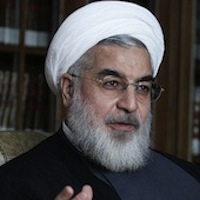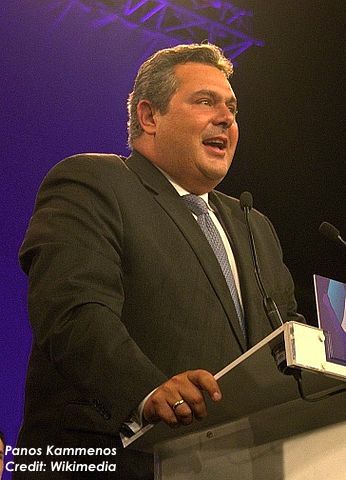Kingsley Moghalu, former Deputy Governor of Nigeria’s central bank, on the significance of Nigeria’s election outcome:
No sitting Nigerian president and his government have ever been removed from office through the ballot box. This is a rarity in Africa as a whole. There has been only a handful of opposition electoral victories, including in Cote d’Ivoire, Kenya, Malawi, Senegal and Zambia.
Perhaps just as important is incumbent President Goodluck Jonathan’s phone call to Buhari conceding defeat before final poll results were announced. This sets the tone for a peaceful transition devoid of the violence that characterized previous elections.
As it happened:
Jonathan apparently conceded in a telephone call to Buhari at 5:15 pm even before the final results were declared, earning him praise from politicians of all stripes.
The inside story of the call, from Mansur Liman, editor of BBC Hausa, who broke the news:
He told me that Gen Buhari had just received a phone call from his rival, in which the president conceded and congratulated him.
I did not doubt that this was true as I trusted my source, but given what has happened before in Nigeria, this kind of concession was up to that point unimaginable.
[…]
There were, of course, people who were very concerned about what could happen if the result was contested.
And I have since discovered that members of the National Peace Committee, which is headed by former President Abdulsalami Abubakar, visited President Jonathan as the results were being announced.
I understand they were the ones who persuaded the president to do something to avoid any trouble, and shortly after the visit he made the call.
[…]
By making that call the president saved Nigeria a great deal of pain. If the PDP had insisted that they had won the election, and the APC had said the same, the country would have been in chaos.
Lives would have been lost and property would have been destroyed. That call showed that in Nigeria, people can put the country first.
I have heard from PDP supporters that the president took the decision to make the call without consulting anyone. They told me that if he had talked to some of his advisers, they would have objected.
The President continues to enforce his will to concede, over the objections of the diehards, thanks to the positive affirmation he received from around the world:
“The President has prevailed on PDP to drop plans to go to tribunal against Buhari. He said he wants his word to be his bond, having been applauded by the international community,” a source told The Nation.
“At a point, Jonathan said ‘I don’t believe in post-election petition at tribunal because it distracts the incoming administration’. He also said Nigeria must emulate other nations where once the presidential poll is lost and won, the new government must not be distracted with election petitions. He told party leaders that he was not interested in going to the tribunal. It is now left for PDP leaders to heed his advice,” the source added.
Now, the APC’s President-elect Muhammadu Buhari must begin the difficult work of reviving Nigeria’s economy and extricating it from a mishandled and brutal northern rebellion.

Logo of the All Progressives Congress opposition coalition. (Credit: Auwal Ingawa)



 But my analysis centered more narrowly on the role that calmer and reframed rhetoric could play in tamping down tensions and climbing “Iran back down off the ledge” that Rouhani’s predecessor Ahmadinejad had helped put it on. Careful and precise political communication, as I suggested then that it could, was indeed able to transcend some of the official political landscape (at home and abroad) and bring the powers and Iran close enough together to find a way toward a deal.
But my analysis centered more narrowly on the role that calmer and reframed rhetoric could play in tamping down tensions and climbing “Iran back down off the ledge” that Rouhani’s predecessor Ahmadinejad had helped put it on. Careful and precise political communication, as I suggested then that it could, was indeed able to transcend some of the official political landscape (at home and abroad) and bring the powers and Iran close enough together to find a way toward a deal. 